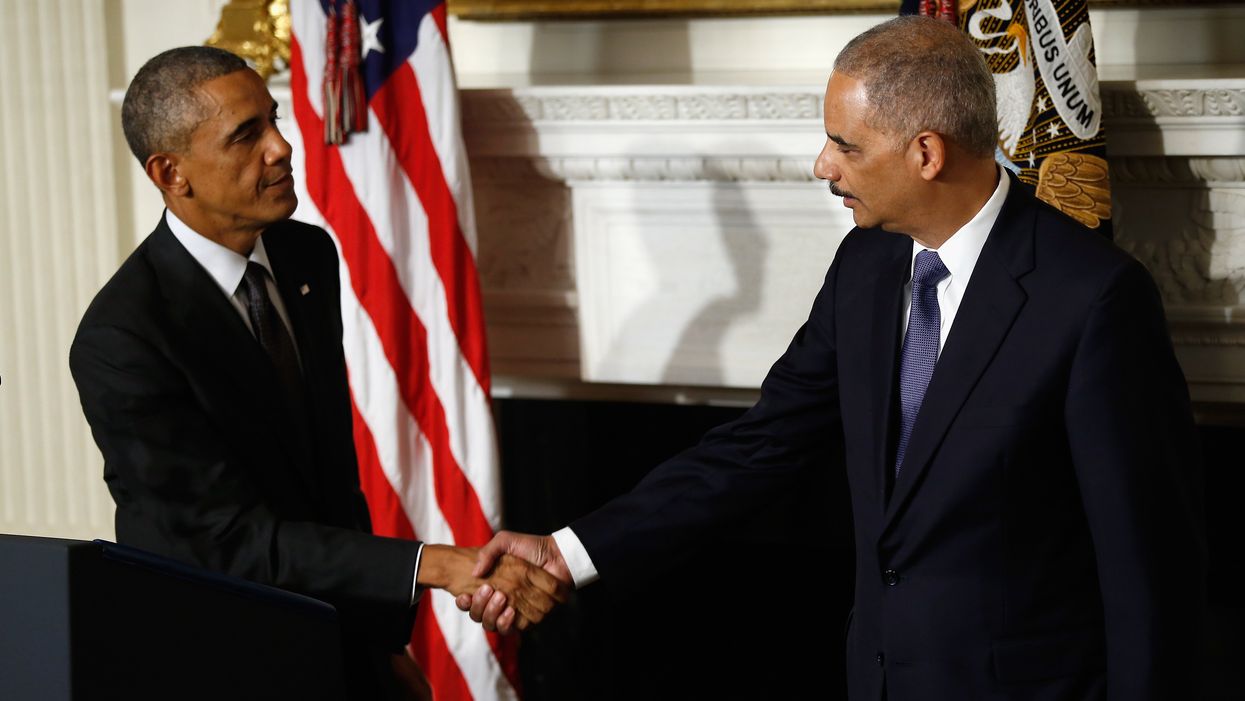The campaign operation backed by Barack Obama and Eric Holder is expanding its sights.
The National Democratic Redistricting Committee was created by the former president and his attorney general to elect more Democratic legislators who could help the party in the coming nationwide remapping of congressional districts. Now it's growing its ambitions to include some judicial elections.
The first target is a pair of Supreme Court contests in Ohio. That's because winning both this fall would tip the partisan balance of the court, and those justices are likely to end up deciding the lines for the 15 House districts that the seventh largest state is likely to have in the coming decade, one fewer than today.
The organization has been a prominent critic of partisan gerrymandering, but its efforts to combat the practice have occurred almost exclusively in states run by Republicans.
That has opened Obama and Holder to criticism that their effort — which they portray as a crusade against one of the biggest obstacles to a more representative and better functioning democracy — is motivated entirely by something different: a desire to get more fellow Democrats in position for the 2020s to maximize their power through mapmaking, the same way the GOP did so effectively in the 2010s.
Ohio is among the dozen states the NDRC is targeting and, like eight others, the state government is now under the control of the GOP. Democrats seizing control of the General Assembly this fall is highly unlikely. But under changes approved by the voters in 2018, the minority party will have more influence over redistricting, especially if their caucuses get a bit bigger, which could result in a deadlock a year from now that kicks the process to the state's high court.
That's why the NDRC may invest in both races for the bench this fall, spokesman Patrick Rodenbush told the Cleveland Plain Dealer.
"Because it was so gerrymandered after 2011, we want to try as much as possible to make that map more fair for the next 10 years," he said.
The partisan gerrymander of Ohio a decade ago has worked just as well as the GOP could have hoped. The party has held 12 of the states 16 seats all decade, even in the 2018 midterm, when Republican candidates took just 52 percent of the congressional vote statewide.
Since its 2017 founding, the NDRC and its affiliates have raised $52 million, much of it from liberal millionaires and labor groups who were generous donors to Obama's campaigns.
The other states on its target list are:
- Texas, Florida and North Carolina, all states that are going to gain House seats after the census and where the GOP is currently in control.
- Michigan and Pennsylvania, which like Ohio have GOP state governments and expect to lose one seat each.
- Minnesota, which has the only politically divided legislature in the country and will lose a seat.
- Kentucky, Georgia and Louisiana, which have Republican legislatures and are expecting to keep the same number of seats.
- Virginia and New Hampshire, where the state capitals have just recently titled Democratic and the congressional delegation sizes won't change.




















Marco Rubio is the only adult left in the room